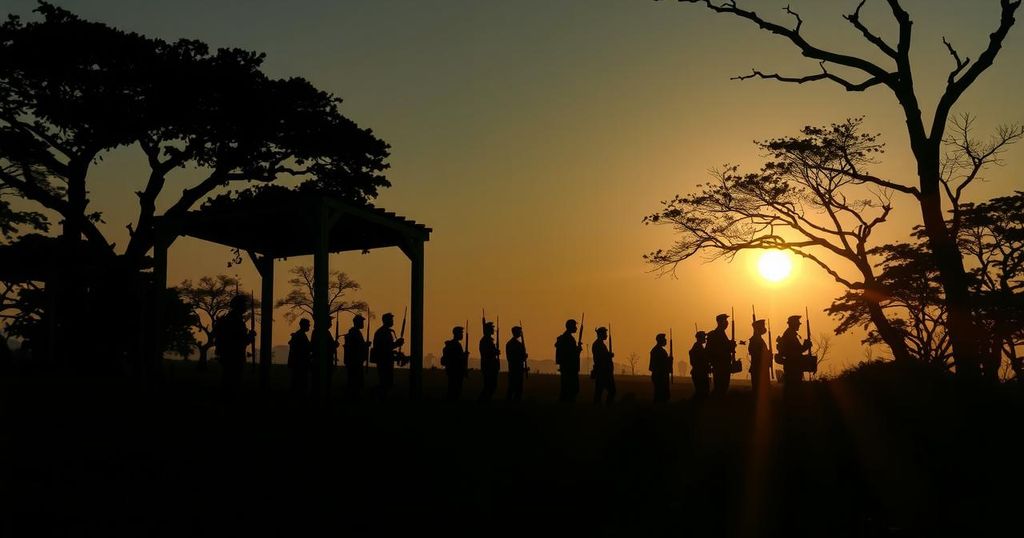The remains of 42 freedom fighters who died in exile during the struggle against apartheid were repatriated to South Africa from Zimbabwe and Zambia. This initiative aims to offer closure to families and commemorate the sacrifices of those who fought for liberation. Key figures among the remains include Duma Nokwe, Florence Mophosho, and Basil February. A ceremonial event will be held by President Cyril Ramaphosa before the remains are turned over to families for reburial. The government plans further repatriations from other countries as part of this reconciliation process.
On Wednesday, the remains of 42 deceased South African freedom fighters were returned to their home country from Zimbabwe and Zambia. This significant act of repatriation took place at the Waterkloof Air Force Base in Pretoria, where government officials and family members welcomed the remains, which had been exhumed for reburial in their homeland. This initiative forms part of a broader government endeavor aimed at providing closure to families whose loved ones endured exile while fighting against apartheid. Before the dismantling of apartheid in 1994, a substantial number of activists were compelled to leave South Africa for military training and to evade possible arrest due to their anti-apartheid activities. Zimbabwe and Zambia became preferred destinations due to the robust presence of underground movements such as the African National Congress (ANC) and the Pan Africanist Congress (PAC). These organizations operated from Lusaka, Zambia, after the ANC was prohibited in South Africa. Among those whose remains have been repatriated are notable figures such as Duma Nokwe, Florence Mophosho, and Basil February. At a recent Heritage Day event, Deputy President Paul Mashatile emphasized the importance of this repatriation, stating that it contributes to the national collective memory and serves to educate younger generations about the sacrifices made in the fight against oppression. He articulated the purpose of the program, indicating it aims to commemorate and preserve the legacy of those who contributed to South Africa’s journey toward freedom. Furthermore, President Cyril Ramaphosa is slated to conduct a ceremonial event to commemorate the homecoming of these remains on Friday, after which they will be entrusted to their respective families for reburial across the nation. The South African government has also announced its ongoing efforts to repatriate additional remains from countries including Lesotho, Ethiopia, Tanzania, and Angola, among others, as part of this important reconciliation process. Deputy Defense Minister Bantu Holomisa noted, “I hope this process will culminate in getting more people in other countries who died under difficult conditions. We welcome them back to connect with their families.”
The repatriation of the remains of South African freedom fighters resonates deeply within the historical context of the country’s struggle against apartheid. The exodus of activists to neighboring countries during the apartheid era was a necessary response to governmental oppression and the need for strategic military training. The relocation of the ANC to Zambia marked a pivotal shift in the fight for liberation, as efforts intensified to combat oppressive rule from a federal base outside South Africa. The repatriation initiative not only serves to honor those who sacrificed their lives but also aims to foster healing among families and communities by reconnecting them with their heritage.
The arrival of the remains of 42 South African freedom fighters from Zimbabwe and Zambia marks a poignant moment in the nation’s ongoing tribute to the heroes of its liberation struggle. This repatriation initiative stands as a testament to the government’s commitment to healing and reconciliation, providing families with the closure they have long sought. As further remains are expected to be repatriated from various countries, these efforts underscore the enduring legacy of the fight against apartheid and the importance of preserving the historical narrative for future generations.
Original Source: www.usnews.com







